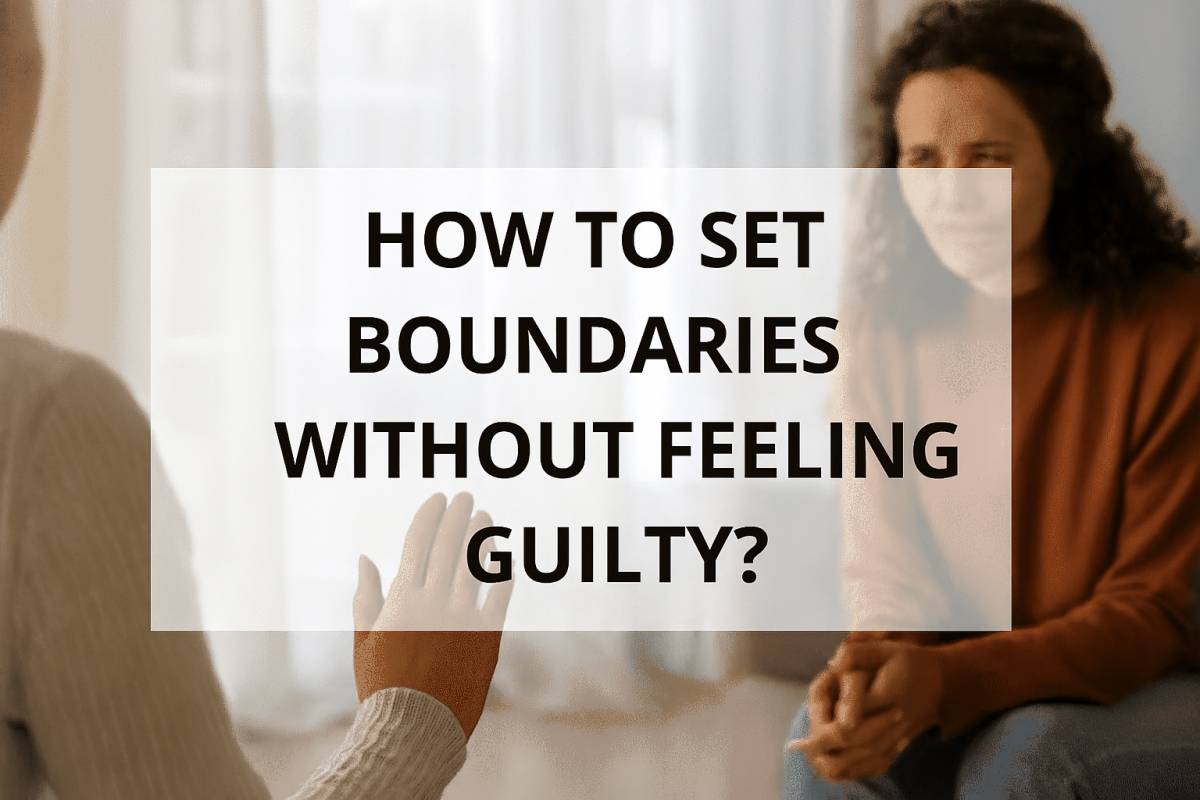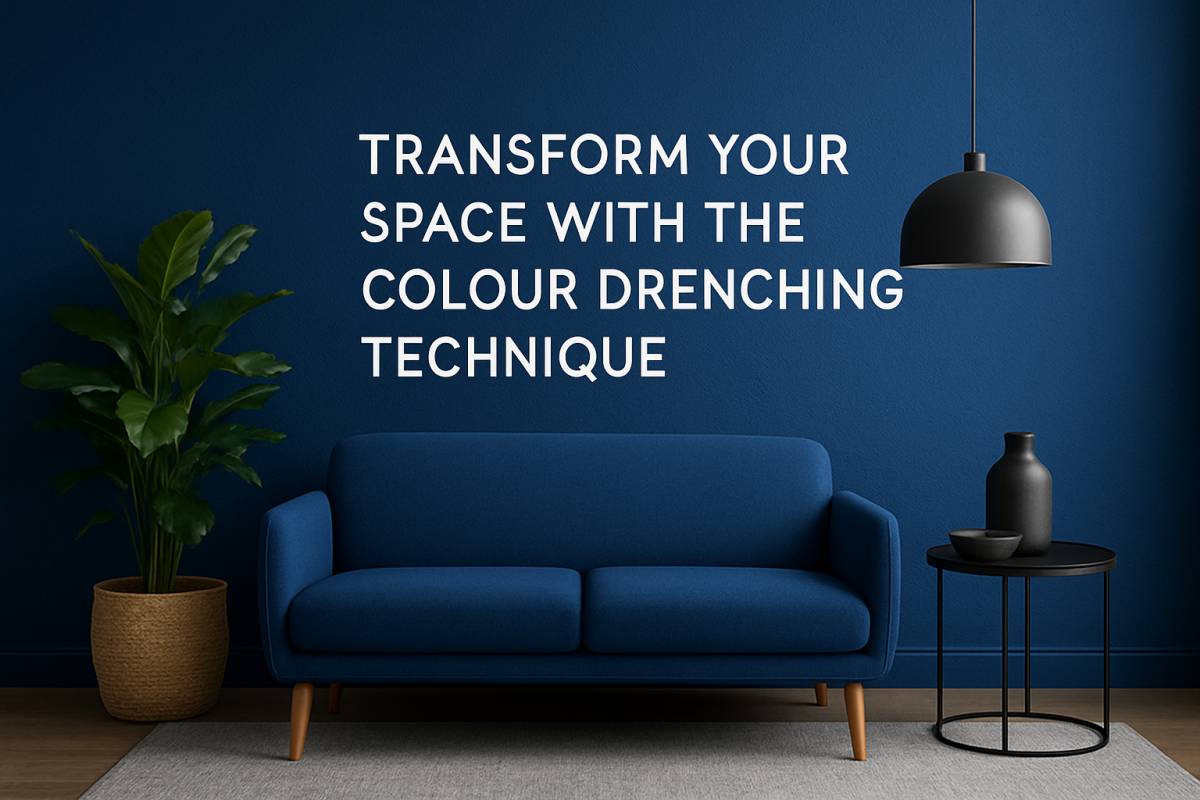How To Set Boundaries Without Feeling Guilty?

Setting boundaries without feeling guilty starts with understanding that saying “no” isn’t selfish – it’s self-respect. Boundaries protect your time, energy, and emotional health. They allow you to build stronger, healthier relationships where mutual respect thrives. The key lies in clear communication, emotional self-awareness, and learning to replace guilt with confidence in your right to personal space.
Why Boundaries Matter More Than You Think
Boundaries are not walls; they are bridges that connect you to others more authentically. Without them, you can easily lose your sense of self, feel overwhelmed, or end up resentful. In both personal and professional life, boundaries define what’s acceptable and what’s not — from how people speak to you to how much time you give to certain activities.
Healthy boundaries:
- Protect your emotional well-being.
- Increase self-respect and reduce stress.
- Encourage honest, respectful communication.
- Help prevent burnout and resentment.
When you set them correctly, you don’t push people away – you invite healthier interactions.
The Root of Guilt: Why Saying “No” Feels Wrong
Feeling guilty about setting boundaries often comes from social conditioning. Many of us are raised to please others, to be “nice,” or to put others first. You may fear rejection, conflict, or disappointing someone. Guilt appears as your brain’s way of signaling a perceived threat — but in reality, it’s a false alarm.
The truth is, guilt doesn’t mean you’re doing something wrong. It just means you’re doing something new and necessary. Learning to sit with that discomfort is the first step toward freedom.
Step 1: Redefine What Boundaries Mean to You
Before you can set boundaries confidently, you need to reframe your mindset. Boundaries are not restrictions; they’re guidelines for self-care.
Try replacing these thoughts:
- “I’m being selfish” → “I’m protecting my peace.”
- “They’ll be upset with me” → “I’m being honest about my limits.”
- “I should say yes to be kind” → “Kindness includes honesty.”
When you change your self-talk, you change how guilt affects you.
Step 2: Identify Where You Need Boundaries
To know where to set limits, notice where you feel discomfort or resentment. Those emotions often point directly to a boundary being crossed.
Ask yourself:
- Do I feel drained after spending time with certain people?
- Am I saying “yes” when I want to say “no”?
- Do I feel taken for granted or overlooked?
These signals reveal the areas where you need stronger boundaries — whether it’s emotional, physical, digital, or professional.
Step 3: Start Small and Practice Assertive Communication
You don’t need to overhaul your entire life overnight. Begin with small steps. Maybe it’s not replying to work messages after hours or declining a social invitation when you need rest.
Use clear and respectful language:
- “I appreciate the invitation, but I need to rest tonight.”
- “I’m not available for that project right now.”
- “I need some quiet time, but I’ll call you later.”
Notice that you’re not apologizing excessively or justifying your decision. That’s where confidence begins to replace guilt.
Step 4: Expect Pushback — and Don’t Take It Personally
When you start setting boundaries, not everyone will react positively. People who benefit from your lack of limits might resist the change. But that’s not your problem — it’s part of their adjustment process.
Stay calm and consistent. The more you honor your boundaries, the more others learn to respect them. Remember: you teach people how to treat you.
If someone responds with guilt-tripping or manipulation, hold firm. You’re not responsible for managing their emotions — only your own.
Step 5: Replace Guilt with Gratitude and Confidence
Every time you set a boundary, remind yourself of what it gives you:
- More time for self-care.
- Better focus and emotional clarity.
- Stronger, more genuine relationships.
Instead of feeling guilty, practice gratitude for honoring your needs. Over time, you’ll realize that guilt fades, replaced by a deep sense of peace.
Step 6: Use the “Pause Before Yes” Technique
If guilt often drives your decisions, adopt the habit of pausing before saying yes. This moment of reflection helps you make choices from clarity, not obligation.
Ask:
- “Do I really want to do this?”
- “Do I have the time and energy?”
- “Will saying yes make me resentful later?”
This mental pause protects you from overcommitment and reminds you that your time and peace are valuable.
Step 7: Create Boundaries in the Digital Age
In today’s world, constant access makes it harder to maintain limits. You may feel pressured to reply instantly or be “always available.” Setting digital boundaries is essential for mental balance.
Practical tips:
- Turn off non-urgent notifications.
- Set “Do Not Disturb” hours for your phone.
- Avoid checking emails after work hours.
Digital boundaries signal to others — and yourself — that your attention has value.
Step 8: Reinforce Boundaries with Self-Compassion
Even with practice, guilt might resurface. When it does, talk to yourself with kindness instead of criticism. Say, “It’s okay to take care of myself. I deserve rest and peace.”
Self-compassion transforms boundaries from something you “should” do into something you genuinely value. Remember, guilt is just an old habit — one you can outgrow.
Step 9: Surround Yourself with Respectful People
The more you interact with people who respect your limits, the easier it becomes to maintain them. Seek relationships based on mutual respect, trust, and honesty. Avoid those who drain you emotionally or exploit your kindness.
Healthy company reinforces your boundaries — unhealthy ones test them.
Step 10: Celebrate Your Progress
Every time you say no without guilt, acknowledge it. Celebrate it. Small victories create powerful momentum. Setting boundaries isn’t about perfection – it’s about progress and self-awareness.
You’re teaching yourself, and others, that your well-being matters.
Final Thoughts: Boundaries Are Self-Love in Action
Setting boundaries without guilt is not about being cold or detached; it’s about protecting your energy so you can show up as your best self. It’s choosing peace over people-pleasing, clarity over chaos, and respect over resentment.
You deserve relationships and routines that honor your emotional space. The moment you start respecting your limits, others will too – and guilt will no longer stand in your way.








